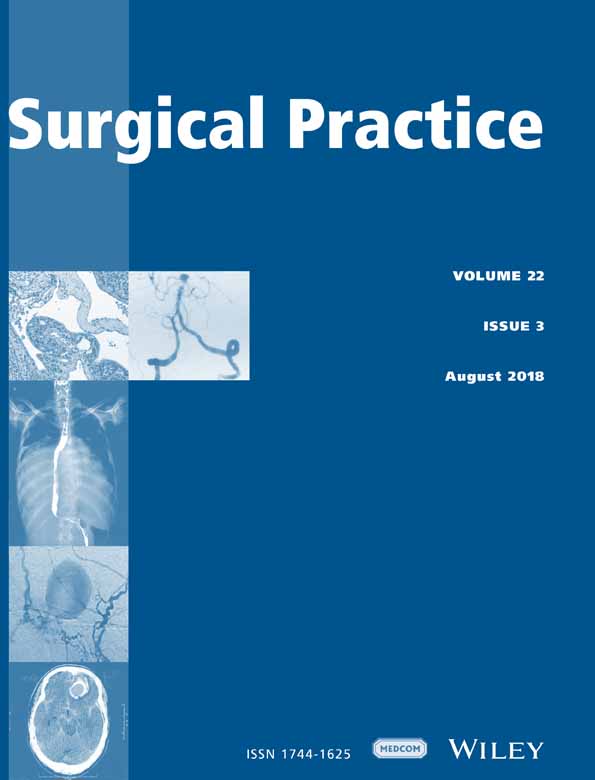C-reactive protein as a marker of the systemic inflammatory response to surgery reduction within an enhanced recovery after surgery protocol in elective colorectal surgery of the elderly: A prospective cohort study
Abstract
Aim
The main aim of the present study was to evaluate the systemic inflammatory response (SIR) to surgery using C-reactive protein (CRP) in patients <70 and ≥70 years of age, operated on by elective colorectal surgery with an enhanced recovery after surgery (ERAS) protocol, and to compare them with a historical cohort with standard care (pre-ERAS group). The secondary objectives were to analyse the length of stay (LOS) in hospital, 30-day readmission rates and complications in both age groups.
Patients and Methods
There was a total of 133 patients <70 years (69 in the pre-ERAS group and 64 in the ERAS group) and 123 patients ≥70 years (66 in the pre-ERAS group and 57 in the ERAS group). We compared the CRP values on postoperative days (POD) 1, 2 and 3 between the pre-ERAS/ERAS group, laparoscopic/open surgery and the presence/absence of Clavien–Dindo complications. Multivariable linear regression was used to assess whether ERAS had a decreasing effect on the SIR on POD 1, 2 and 3.
Results
The groups were well balanced. The ERAS protocol decreased the SIR to surgery in patients ≥70 years. This could explain our good results, where there was a decrease in LOS in hospital in that group without an increase in 30-day readmission rates or perioperative complications. ERAS protocol did not decrease the SIR at any point in the evolution of patients <70 years. The application of an ERAS protocol in patients≥70 years, laparoscopic surgery and not having complications reduced the SIR.
Conclusion
ERAS could be implemented without reservations in elderly patients undergoing elective colorectal surgeries and decreases the SIR to surgery and LOS in hospital more for younger patients than elderly patients.




